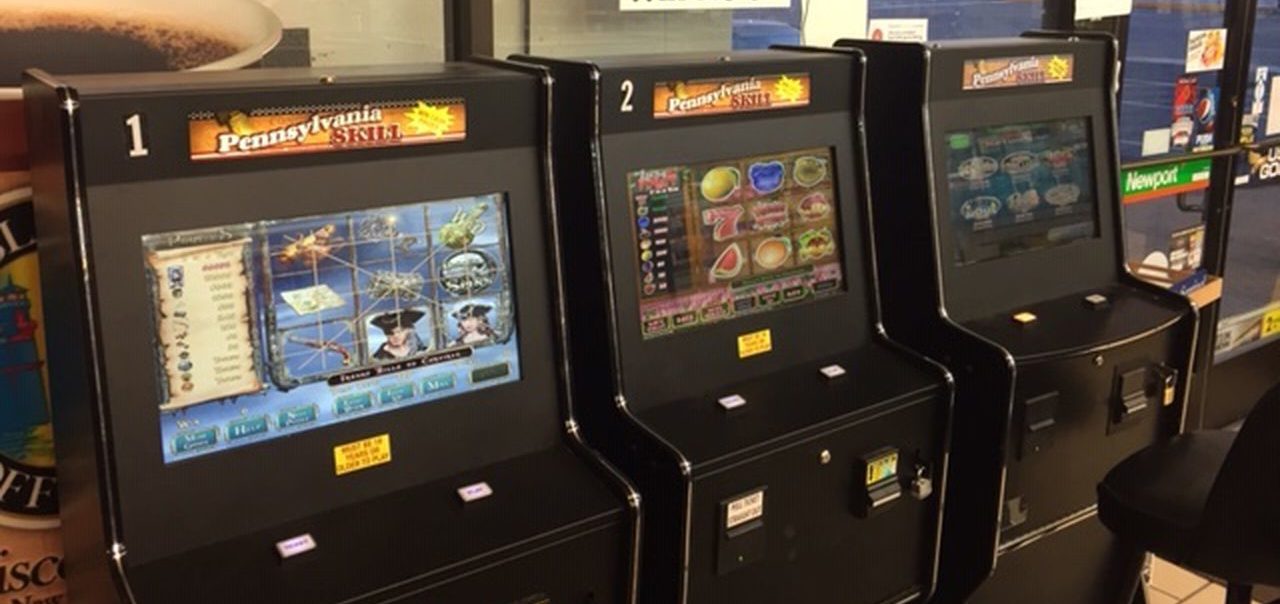An illegal gaming lounge in Berks County, Pennsylvania, has been raided by police and has been officially shut down. Fifty-seven machines and more than $68,000 in cash were seized from the property after an investigation revealed the illegal activity.
The business under question was 777, located in Shillington, Pennsylvania. State police announced that an investigation began in February, and authorities recently had enough evidence to issue search warrant.
Residents in Shillington brought the business to the authorities’ attention when the 777 was looking to expand. Illegal slot machines were all taken away, and charges are expected to be made for the owners of 777.
The business was not actively trying to hide the machines from the general public, and they were calling these “skilled gaming machines.” These gaming machines are very similar to slot machines, but it requires the bettor to determine the winning pay line.
777 believed that they were able to own and operate these machines, but police in the state have deemed otherwise. Seven hundred seventy-seven turned an entire store in a strip mall into a gaming parlor filled with these machines.
Controversy Surrounding Machines
These skill gaming machines can be found throughout Pennsylvania, but that doesn’t mean that they are legal. There has been a long battle surrounding the games, and law enforcement has taken things into their own hands when trying to remove them.
Bars, gas stations, restaurants, and even grocery stores are all known to have the slot-like devices available for their patrons. The casino operators in the state of Pennsylvania have been looking to get these machines shut down, and they have some valid arguments.
Casinos have to share a portion of their gross gaming revenue with the state, and they also have to pay millions of dollars in licensing fees. The businesses that offer these skill gaming machines do not, and that has sparked the controversy.
Businesses that offer skilled gaming machines share some of the profits, but that money goes back to the manufacturer and distributor. At least ten manufacturers of these specialized gaming machines are under investigation by law enforcement in the state.
Fifty-four percent of all gross gaming revenue from slot machines at the casinos is paid back to the state, which also gets 16 percent of all revenue from table games. Even though these games are called something different, most in the gaming industry believe they are the same.
Penn National Starting to Speak Out
What started as a small controversy and a little battle has now turned into a significant argument in Pennsylvania. Penn National Gaming has joined in, and they are against skilled gaming machines, as expected.
Penn National Gaming is the oldest casino operator in the state, and they are a massive name in the Northeast region of the US. Penn National is looking to expand its operations, but they want these illegal machines to deal with it.
Lawmakers in the state of Pennsylvania are also making their opinions felt on the topic, and Penn National Gaming is trying to use their power to sway the vote. Some lawmakers are in favor of legalizing these machines but charging a licensing fee for the operators.
Penn National is looking to build a new mini-casino in Morgantown, and they paid $7.5 million for that right. This location is just 10 miles away from the site that 777 was running their illegal operation.
Penn National will be paying the standard licensing fees and taxes to the state, but they hope that they will have less competition from these “illegal” machines.




